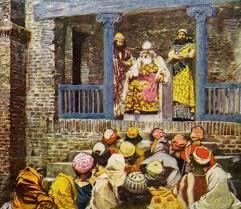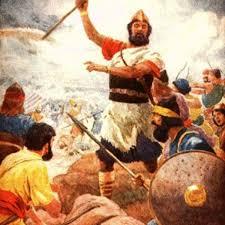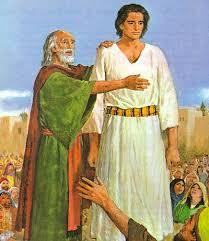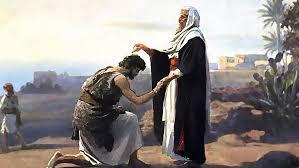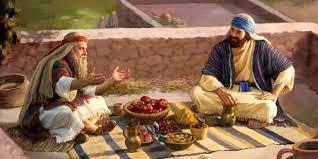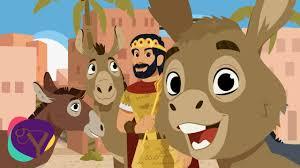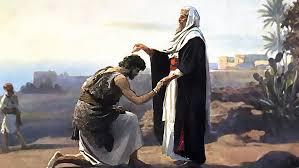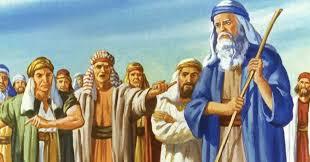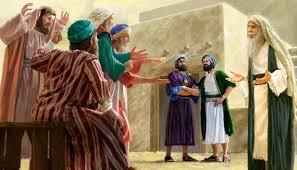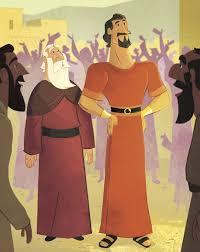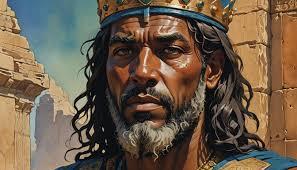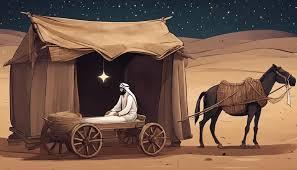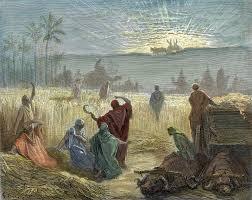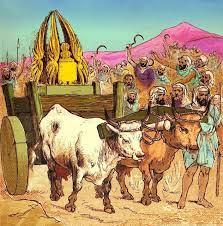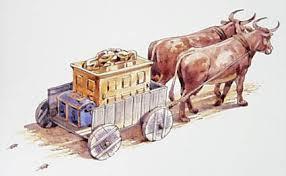Cb – The Decline of King Sha’ul First Samuel 13:1 to 15:35
The Decline of King Sha’ul
First Samuel 13:1 to 15:35
Although the story of Sha’ul’s decline begins in Chapter 13 and is highlighted in Chapters 13 to 15, it continues sporadically to the end of First Samuel and is inextricably intertwined with the story of David’s rise (to see link click Cl – The Rise of David). The entire account of the interaction between the two men as recorded in Chapters 13 to 31 can be called “crossing fates.” As one man’s fate goes down, the other goes up.
The people had demanded a king, and ADONAI had selected one: a young man named Sha’ul from the tribe of Benjamin. As we have seen, he was tall, strong, wealthy, and probably well educated. He had everything going for him from the world’s perspective. Furthermore, the Ruach Ha’Kodesh had come upon him and given him a new outlook on life. As our passage begins, Sha’ul has been king for just two years and already experienced many victories from the LORD. He had successfully rallied the people to defend against the threat from the Ammonites, who were terrorizing the people of Jabesh-Gilead (see Bz – The Ammonite War). After that great military victory, all the people came to Gilgal to confirm Sha’ul as their king in the presence of ADONAI. There they presented sacrifices as peace offerings before ADONAI, and Sha’ul and all the people of Isra’el celebrated with great joy (11:15). The people of Isra’el were happy to have such a king, and Sha’ul was happy to be such a king.
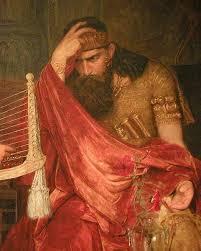
While the people were assembled together at Gilgal, in his farewell address (see Ca – Samuel’s Farewell), Samuel had said: If you will fear ADONAI, serve him, obey what he says and not rebel against His commands – if both you and the king ruling over you remain followers of ADONAI your God – then things will go well for you. But if you refuse to obey what ADONAI says and rebel against His commands, then ADONAI will oppress both you and your leaders (12:14-15). This would prove to be a telling prophecy. Sha’ul rode his wave of success into his next battle against the Philistines (see Af – Isra’el and the Philistines). At first, things go well, just as they had before against the Ammonites. But when the battle grew fierce, and Sha’ul’s army started to desert him. It proved to be the big test of his faith. Whom would he serve? Would he be willing to submit himself to the LORD as the true King of Isra’el? Or would he take that authority upon himself? This would truly be the moment when Sha’ul would either show he was a man of faith after God’s own heart or a man of weakness in pursuit of his own interests. In the final analysis, he would choose himself, and because he rejected the word of God, ADONAI would reject Sha’ul as king. As Samuel declared to him, “Obedience is better than sacrifice, and submission is better than offering the fat of rams (15:22-23).
Chapters 13-15 may be outlined as follows. Samuel’s initial rebuke of Sha’ul (A) parallels God’s final rejection of Sha’ul (A); Sha’ul’s victory against the Philistines (B) parallels his victories against various enemies, including the Philistines (B); the hinge of the section is Sha’ul’s determination, however reluctant, to execute his firstborn son, Jonathan, heir to the throne (C).
A. Samuel Rebukes Sha’ul (13:1-15)
B. Isra’el Routs the Philistines (13:16-14:23)
C. The Cursing of Jonathan (14:24-46)
B. Further Wars of Sha’ul (14:47-52)
A. God Rejects Sha’ul (15:1-35)



